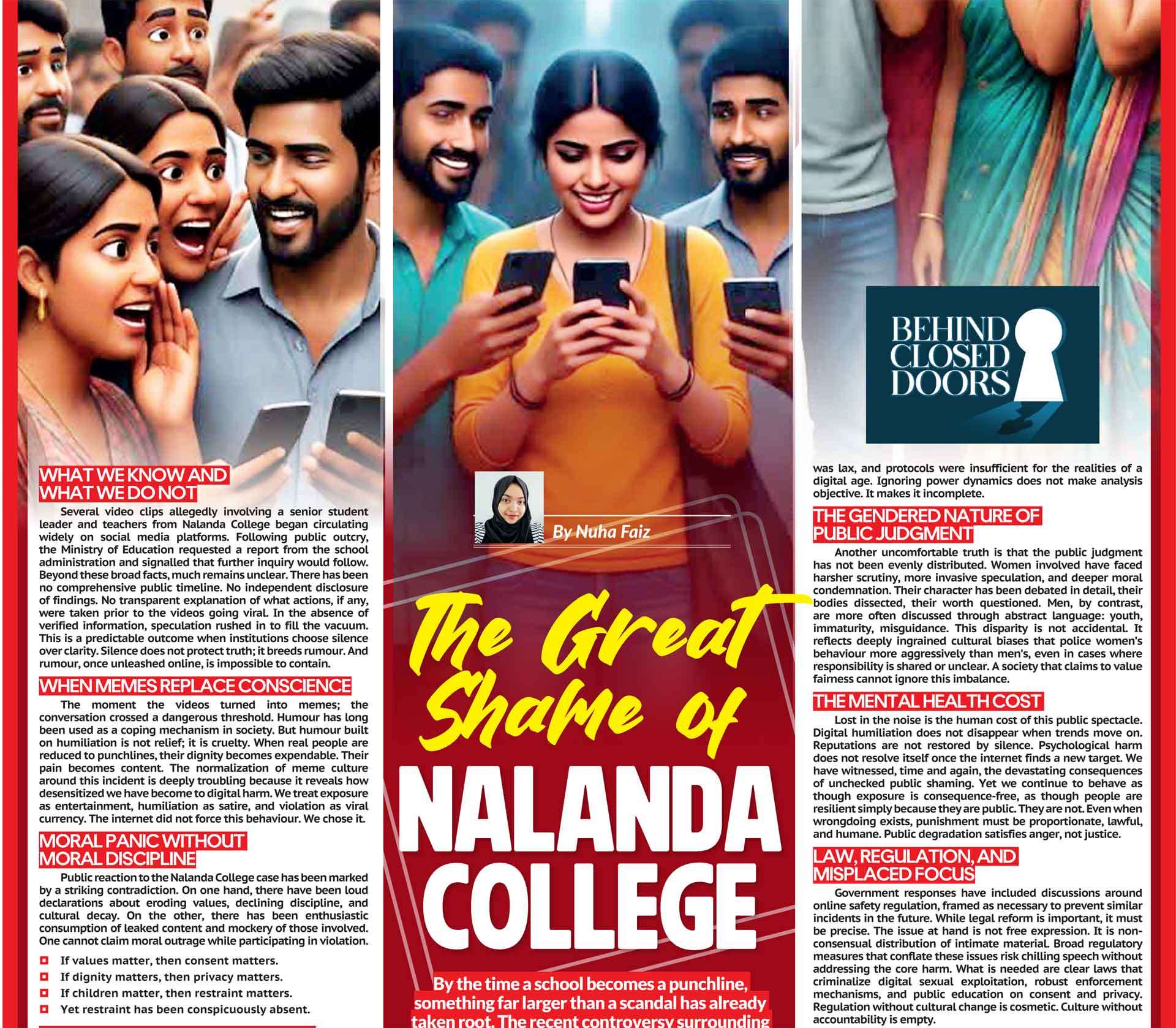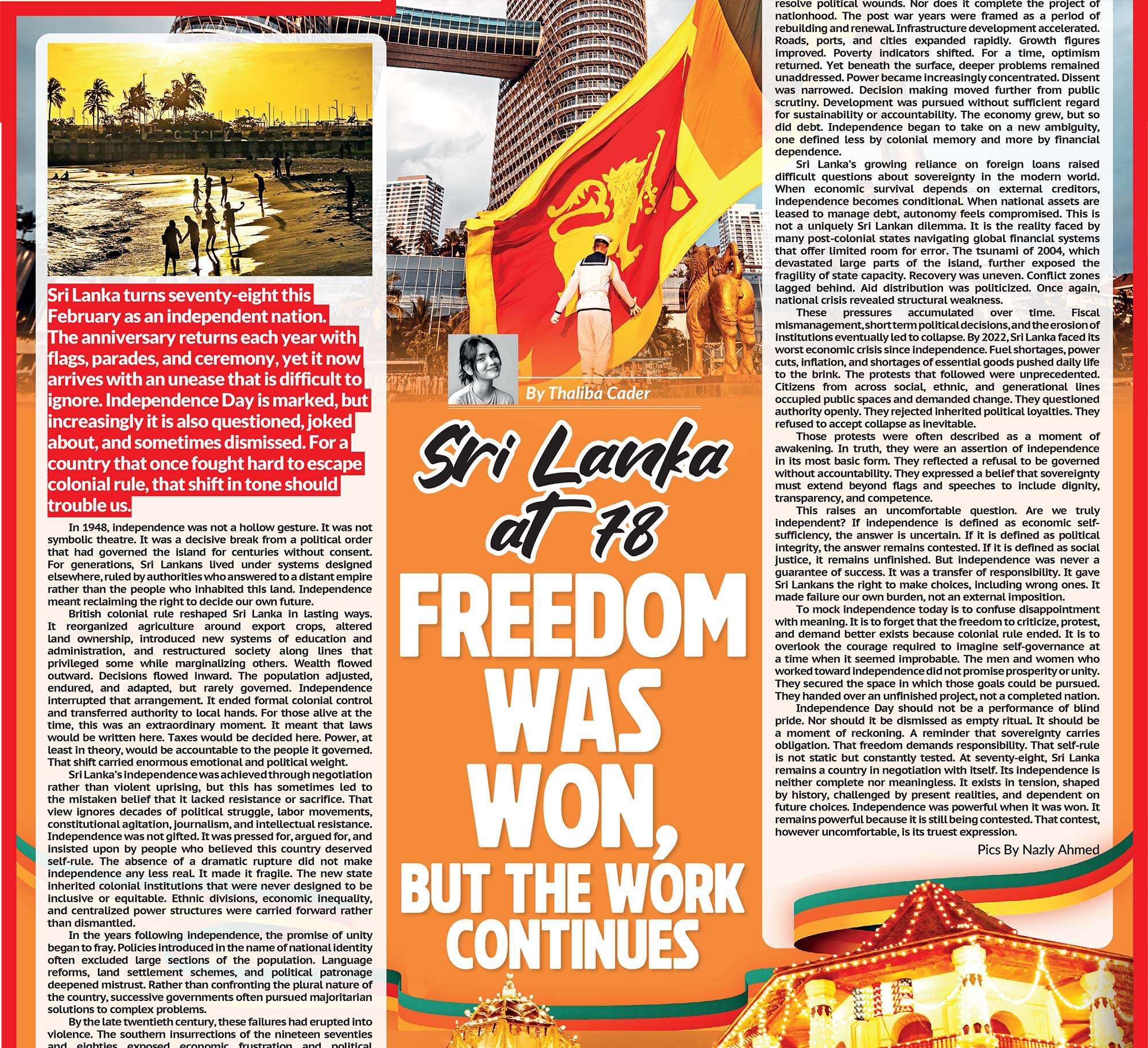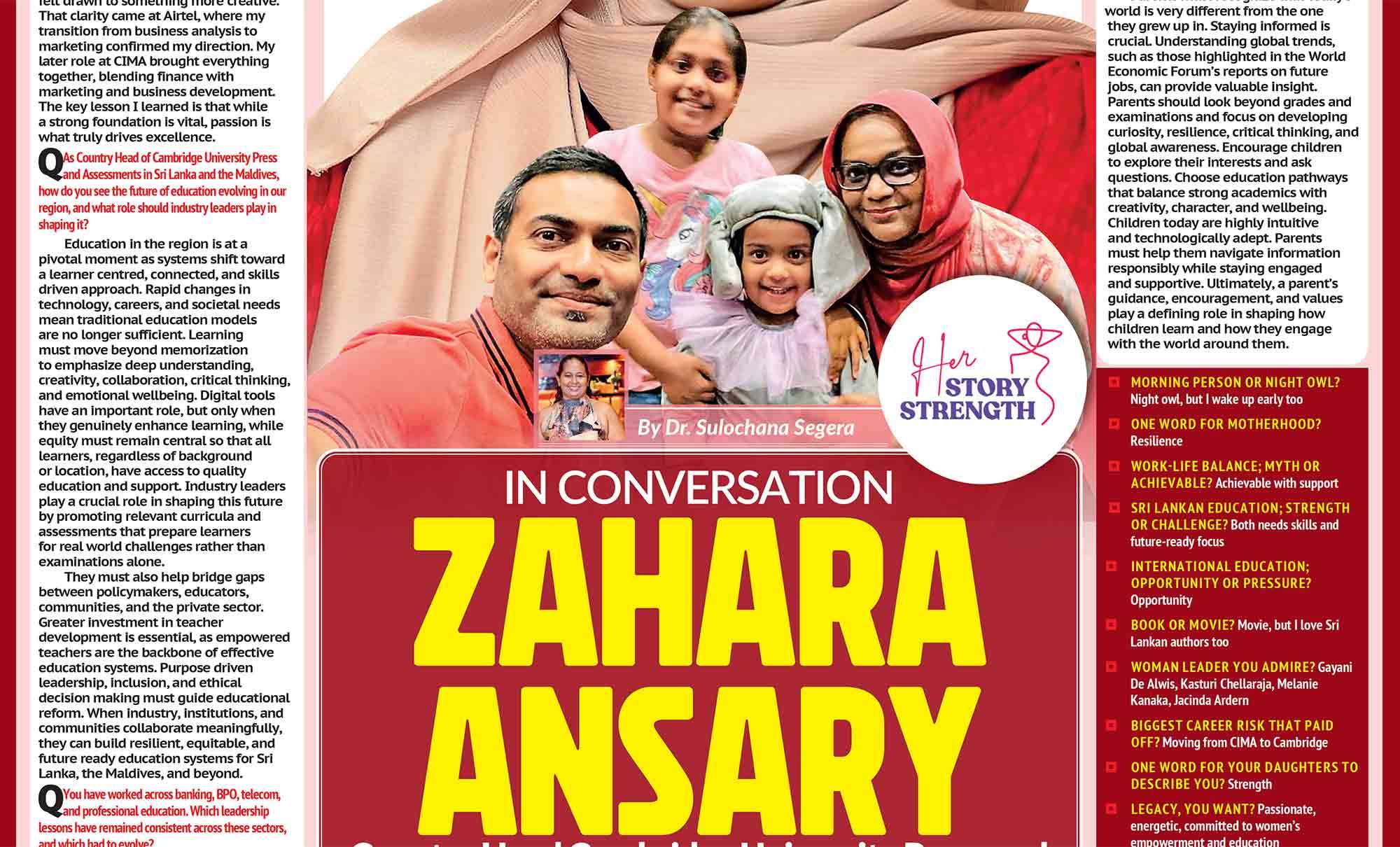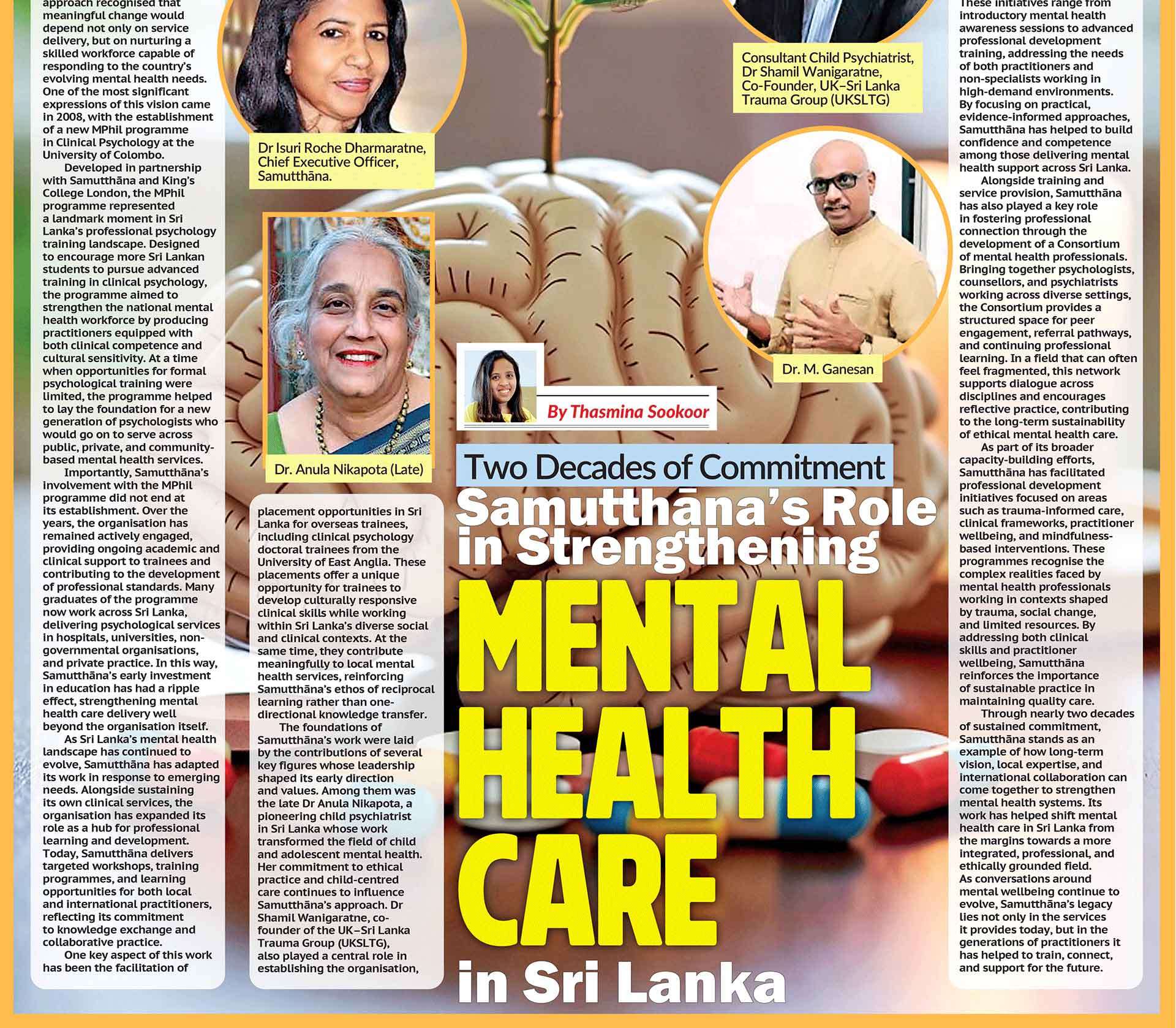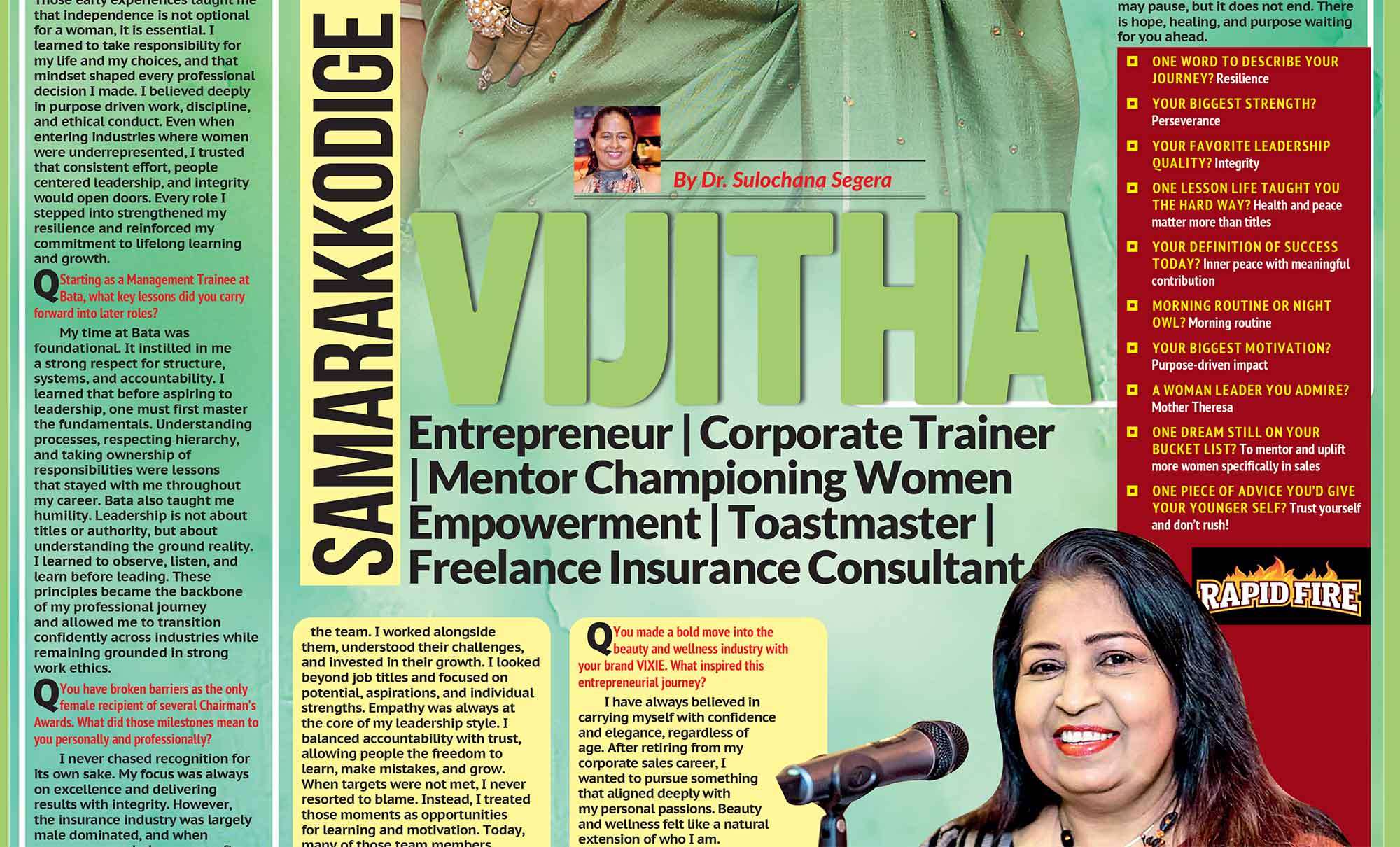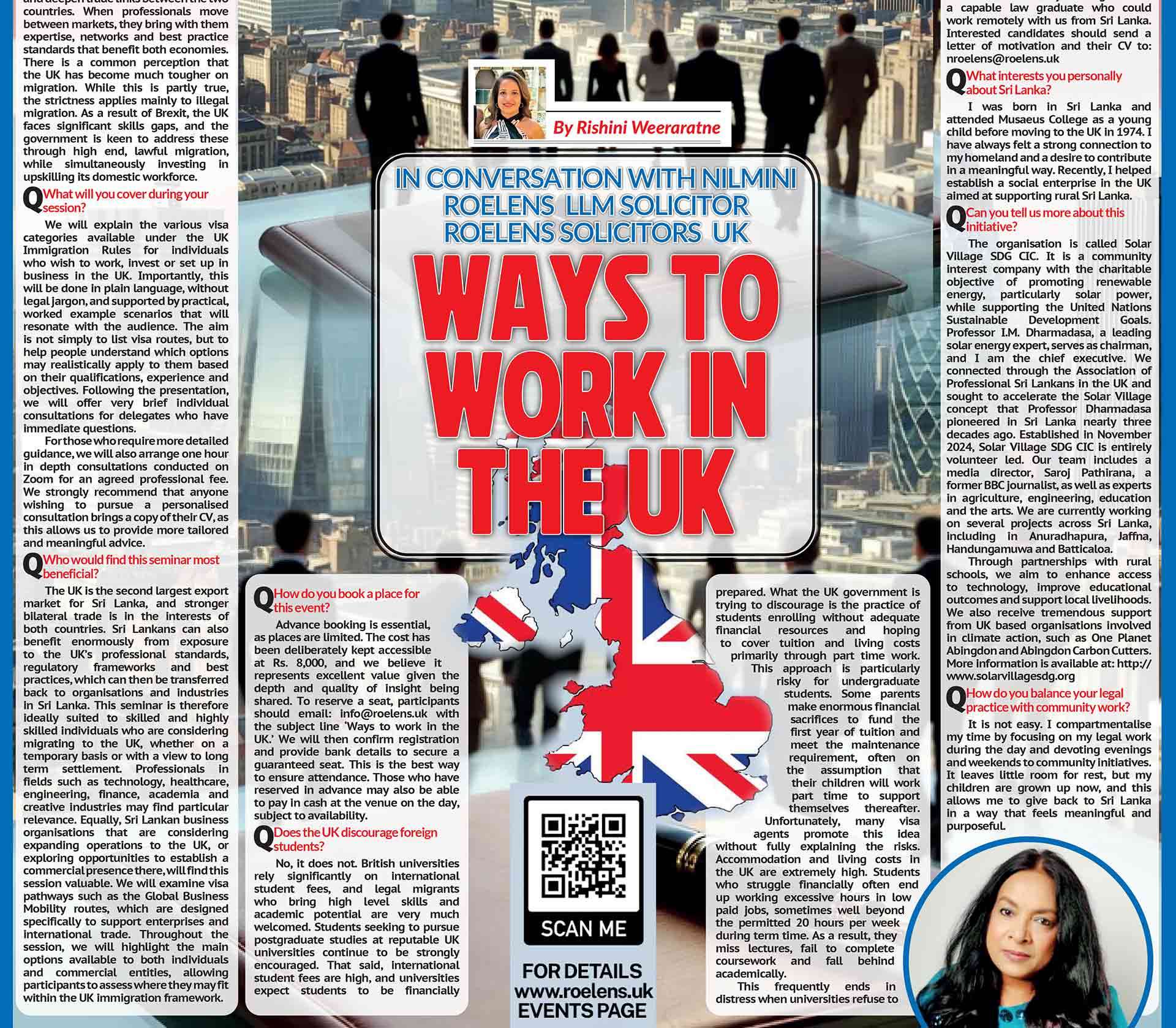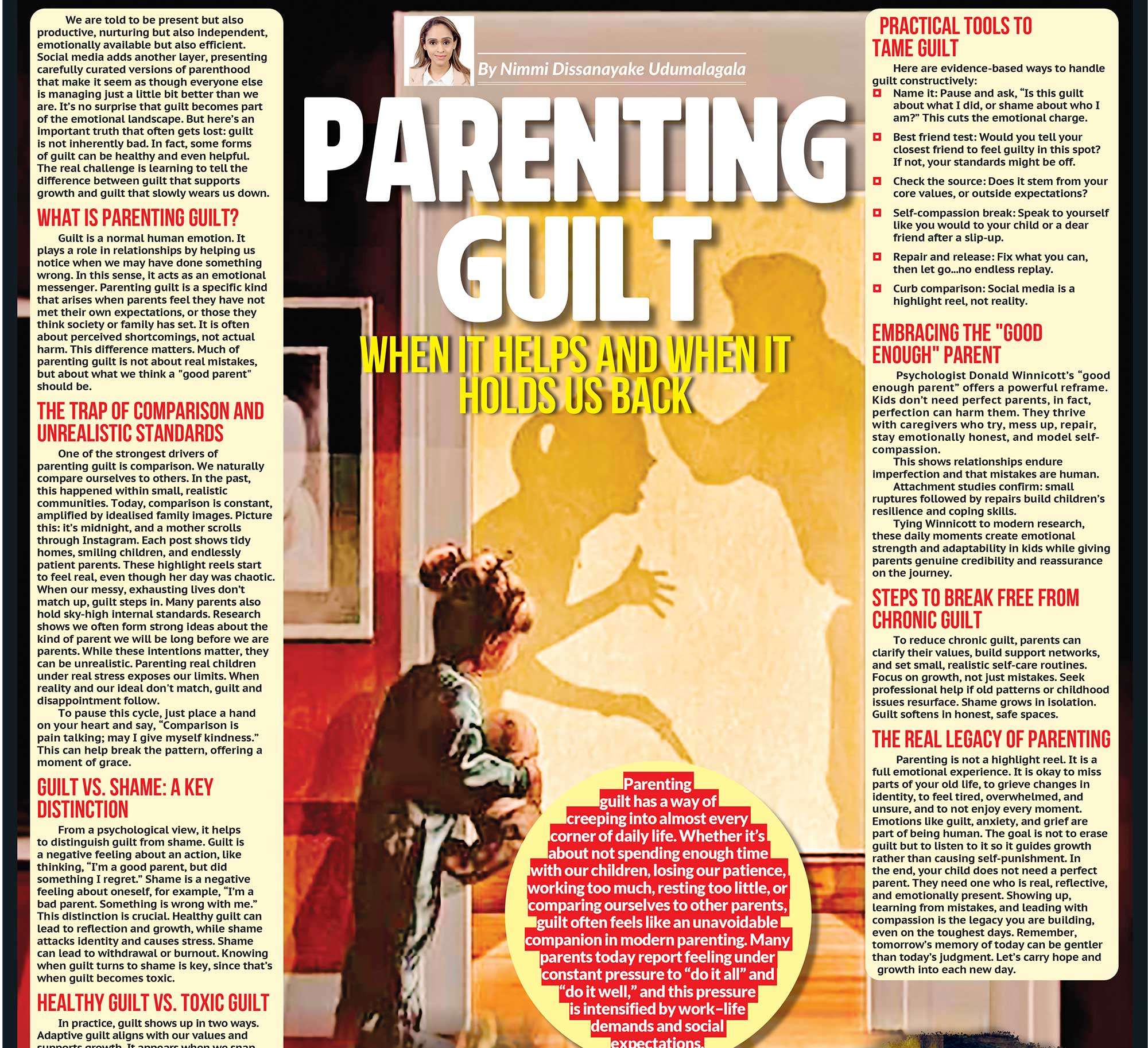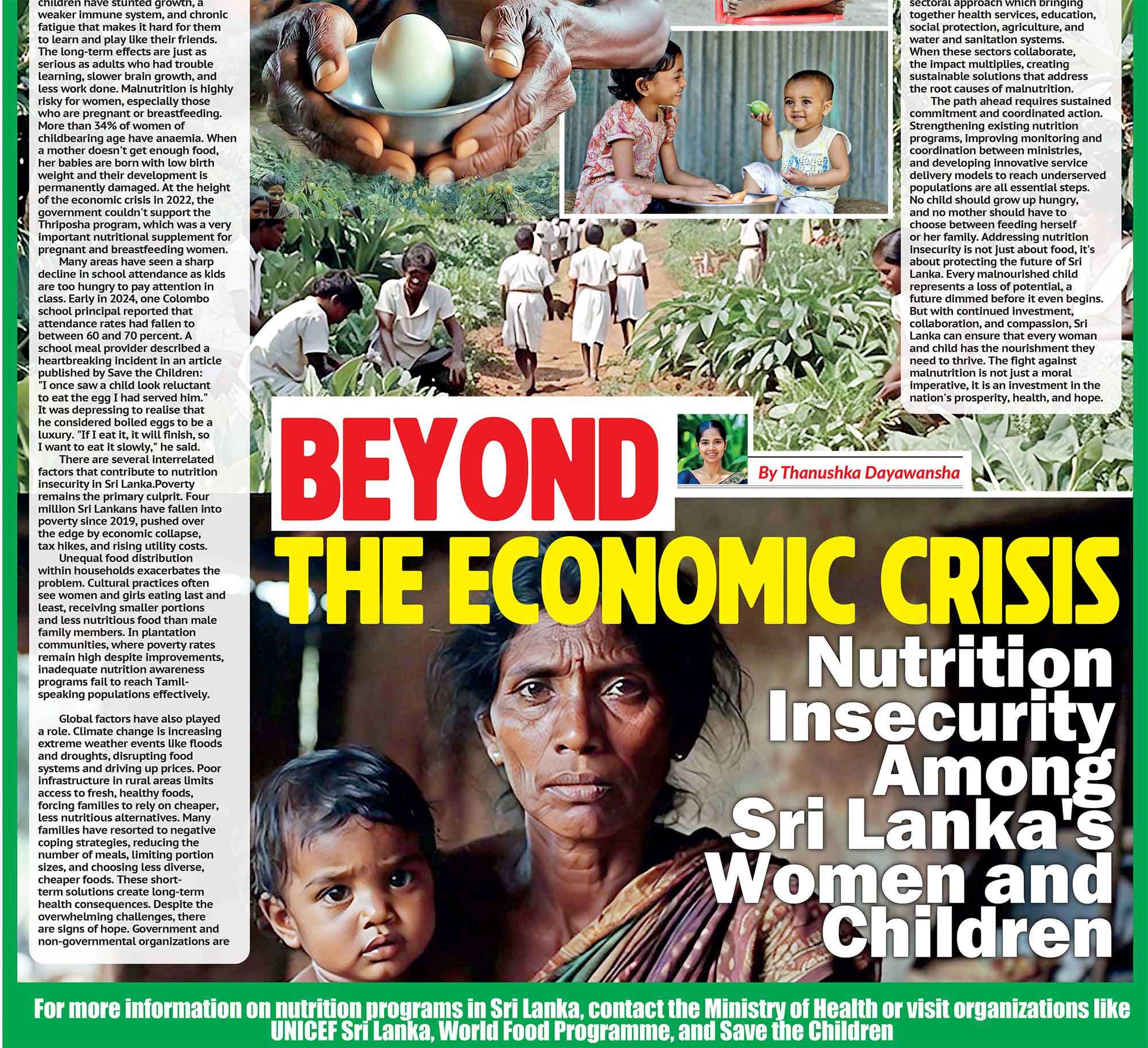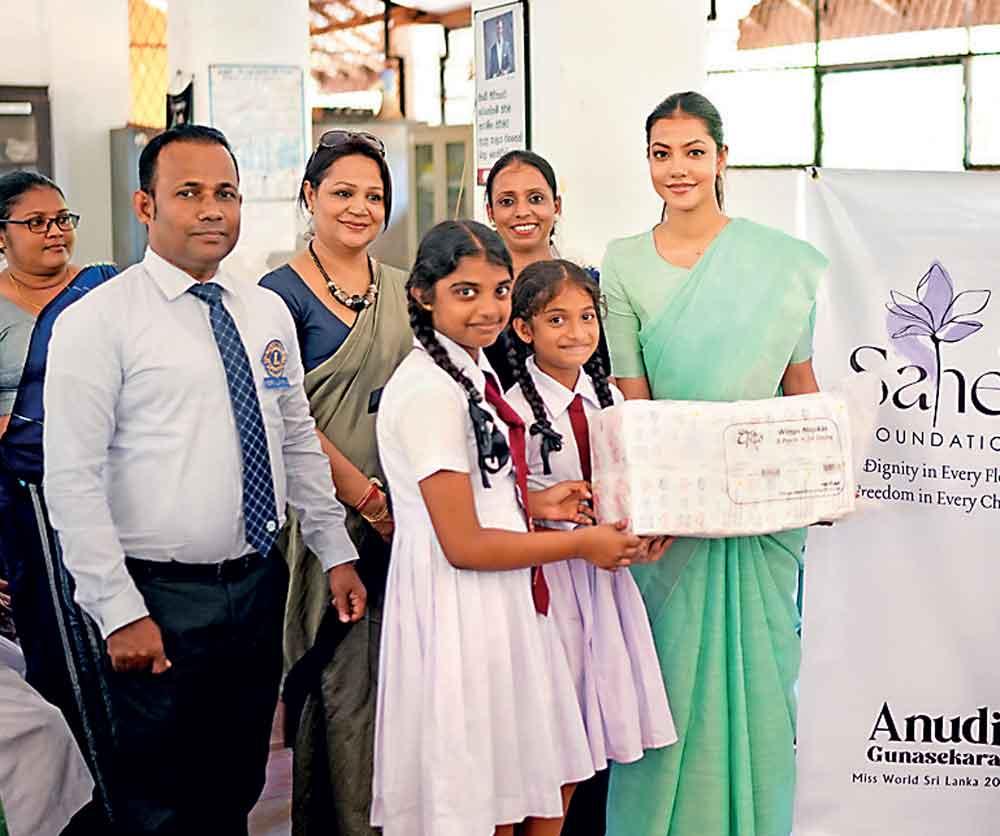
Born on November 7, 1999, in the ancient city of Anuradhapura, Anudi Gunasekara is not just a beauty queen; she is a voice of purpose, a champion of empathy, and a rising force for social change. Her journey, which began in the classrooms and prefect boards of Anuradhapura Central College, where she was Deputy Head Prefect, has since evolved into a life dedicated to service, advocacy, and transformation.
After graduating with Second Upper-Class honours in International Studies from the University of Kelaniya, Anudi’s academic background set a strong foundation for her activism. But it was in July 2024 that she entered the national spotlight, crowned Siyatha Miss World Sri Lanka 2024 in a glittering ceremony at the Hilton Colombo. With the crown came more than recognition; it offered her a global stage to highlight the causes closest to her heart. At the centre of Anudi’s advocacy is Saheli, the non-profit she founded to combat period poverty in Sri Lanka. Far more than a symbolic initiative, Saheli provides menstrual hygiene education, challenges societal stigmas, and distributes sanitary products, particularly to underserved and often overlooked communities.
Q How do you plan to leverage your platform as Miss World Sri Lanka to further the mission of Saheli and address period poverty on a global scale?
I plan to use this platform to amplify Saheli’s model internationally. Our work already includes delivering hygiene kits to underserved women, including female monks. Through Miss World’s Beauty with a Purpose, I want to highlight community-led menstrual initiatives from Sri Lanka, introduce reusable alternatives, and start a regional dialogue on menstrual equity. Period poverty is a global injustice, and I believe Sri Lanka can help lead the way with innovative, compassionate solutions.
Cultural taboos have been a big hurdle, especially when introducing sustainable products like menstrual cups. Many are hesitant or misinformed
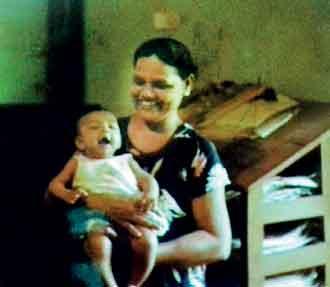
Q In what ways has your degree in International Studies influenced your approach to social activism and your role in the pageant industry?
Studying International Relations taught me to differentiate between performative gestures and genuine change. My academic background shaped Saheli’s outreach, we target overlooked communities like prisons, religious institutions, and rural areas. It also reframed how I view pageantry: not just as glamor but as global diplomacy. It’s a stage where I can humanize causes and advocate for meaningful policy shifts.
Q As a representative of Sri Lanka on the international stage, how do you intend to showcase the nation’s heritage and contemporary issues during the Miss World competition?
I want to strike a balance, to celebrate our heritage through traditional arts and attire while also drawing attention to urgent social issues. My Beauty with a Purpose project centres around menstrual health and women’s rights. I hope to reflect both the pride of our past and the resilience of our people today.
Q Beyond your reign, what strategies have you envisioned to ensure the sustainability and growth of Saheli in combating period poverty?
Sustainability is key. We’re creating partnerships with government institutions, schools, and ethical brands. I plan to train young women and community leaders as Saheli ambassadors. We’re also working on policy advocacy, like reducing taxes on sanitary products, and using digital platforms for education and data tracking. The goal is for Saheli to evolve into a long-term movement beyond just one titleholder.
Q What significant challenges have you encountered in your efforts to promote menstrual hygiene, and how have you addressed them?
Cultural taboos have been a big hurdle, especially when introducing sustainable products like menstrual cups. Many are hesitant or misinformed. We’ve worked with local organizations like Selyn to produce affordable, reusable pads, ensuring cultural sensitivity. We also focus heavily on education, which helps communities slowly open up to change through familiarity and trust.
Q How do you perceive the role of education in empowering women and addressing societal stigmas associated with menstruation?
Education is transformative. It normalizes menstruation, dispels myths, and empowers women to make informed choices. Including boys and men in this conversation is also vital, it builds understanding and dismantles stigma across the board. When we educate early, we create a society that treats menstruation as natural, not shameful.
Q Managing responsibilities as a student, activist, and beauty queen can be demanding. How do you prioritize and balance these roles effectively?
It’s all about time management and discipline. During university, I followed a strict routine: classes in the morning, Saheli work in the afternoon, and pageant prep in the evenings. I prioritize based on urgency and impact, and I always remind myself why I started. That sense of purpose keeps me grounded.
Q Post-pageantry, what are your long-term goals in the realms of social activism and professional endeavours?
I aim to join Sri Lanka’s foreign service, representing the country globally while continuing advocacy for gender equality and human rights. Simultaneously, I want Saheli to become a recognized movement championing menstrual equity through education, policy reform, and innovation. Activism and diplomacy aren’t mutually exclusive; I believe they can complement each other beautifully.

Q Have you considered collaborating with other organizations or stakeholders to amplify the impact of your advocacy work? If so, could you elaborate on potential partnerships?
Absolutely. Collaboration is at the heart of Saheli. We’ve already partnered with local brands for product distribution. Looking ahead, we’re exploring partnerships with health ministries, schools, and international bodies like UN Women and UNICEF. These alliances will allow us to scale up, influence policy, and treat menstrual health as a key human rights issue.
Q How do you address and navigate the public’s perception of beauty queens, especially when engaging in serious social issues?
There’s definitely a stereotype; people often assume beauty queens only care about appearance. I counter that through consistent action: from grassroots work to policy discussions. When I present research or meet government officials about the sanitary tax, it challenges expectations. I also use media and public forums to broaden the idea of what a beauty queen can be smart, driven, and socially conscious.
Education is transformative. It normalizes menstruation, dispels myths, and empowers women to make informed choices
Q Do you have plans to engage with policymakers to advocate for systemic changes regarding menstrual health and education in Sri Lanka?
Yes, and it’s already underway. I’ve had the chance to meet with the Prime Minister to discuss the high tax on sanitary products. I’ll continue pushing for policy reforms, like incorporating menstrual education into school syllabi and ensuring product access in rural areas. This isn’t just about charity; it’s about public health and equity.
Q Throughout your journey from Anuradhapura to the international stage, what personal transformations have you experienced, and how have they shaped your current worldview?
The journey has been humbling and empowering. I’ve grown stronger through criticism and pressure, learning to lead with purpose and grace. My experiences have reshaped how I see the world; I now believe deeply in the power of representation and community. Coming from a traditional town like Anuradhapura, I want to show that even the most remote corners of our country can produce global change-makers.
As Anudi Gunasekara prepares to step onto the Miss World 2025 stage in Hyderabad, she carries with her not only a crown, but the hopes of a nation and the strength of a cause that transcends borders. A powerful voice for women, a visionary for equity, and an ambassador for empathy, Anudi is redefining beauty, not as something ornamental, but as a force for transformation. We wish her the very best as she continues her journey of purpose and power.


